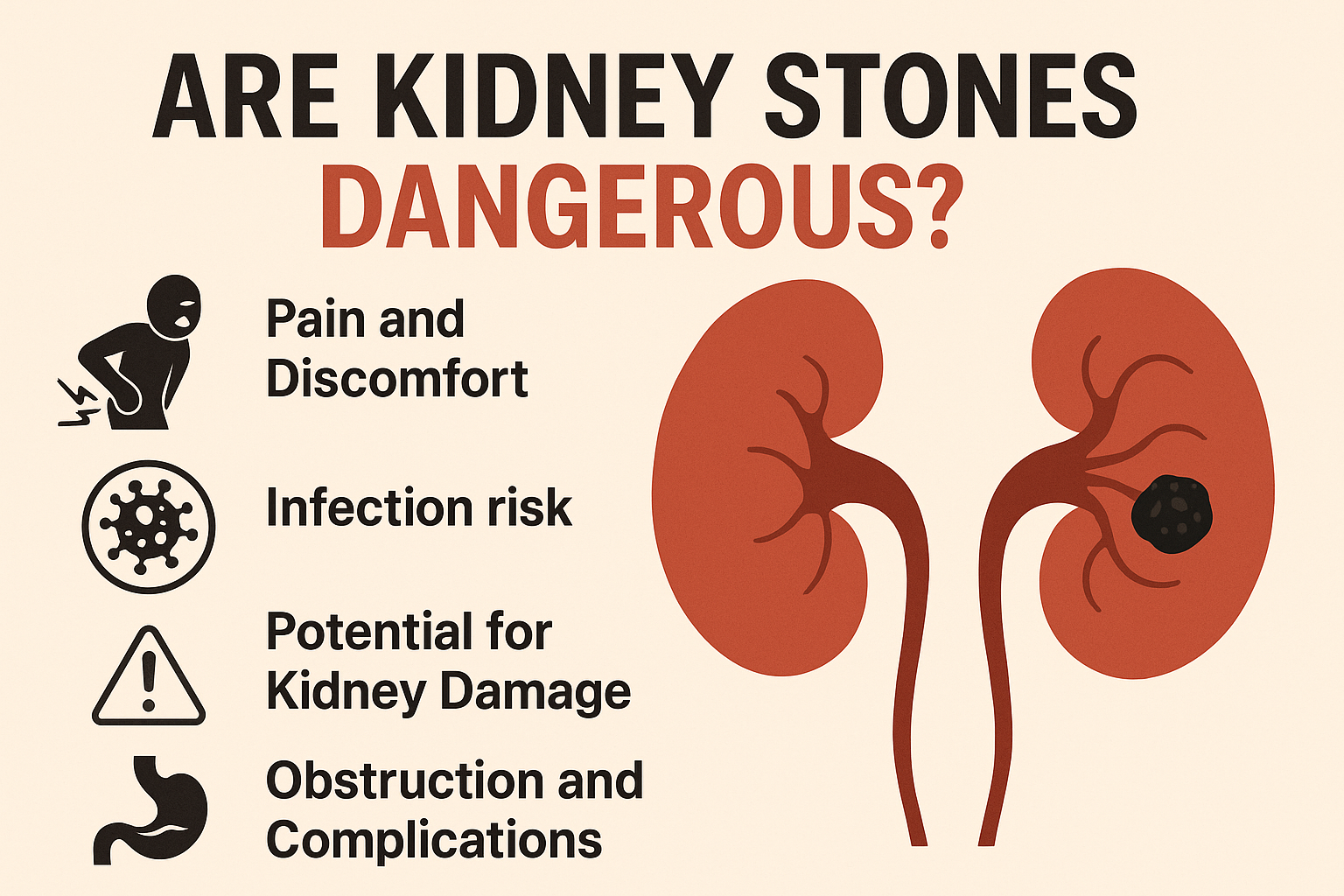Kidney stones, also known as renal calculi, are hard deposits of minerals and salts that form inside the kidneys. They can vary in size, ranging from small grains to large stones. Some kidney stones pass through the urinary tract without causing problems. However, others can cause serious health issues. Knowing the risks of kidney stones is key fo
Kidney stones, also known as renal calculi, are hard deposits of minerals and salts that form inside the kidneys. They can vary in size, ranging from small grains to large stones. Some kidney stones pass through the urinary tract without causing problems. However, others can cause serious health issues. Knowing the risks of kidney stones is key for prevention and treatment.
1. Pain and Discomfort
One of the biggest risks of kidney stones is excruciating pain. This pain can leave patients feeling helpless. When stones move through the urinary tract, they can cause intense pain, known as renal colic. Many people describe this pain as one of the worst they have ever felt.
The pain happens when the stone blocks the ureter. This narrow tube connects the kidney to the bladder. When blocked, it causes swelling and pressure in the kidney. The pain can be so severe that it may lead to:
- Nausea
- Vomiting
- Fainting
A study from the National Institute of Diabetes and Digestive and Kidney Diseases found that about 50% of kidney stone patients reported having the worst pain of their lives. This pain is often compared to that of childbirth or a heart attack.
Understanding the causes and effects of this pain is important for creating effective treatments that help kidney stone patients.
2. Infection Risk
Kidney stones can greatly increase the risk of urinary tract infections (UTIs). These infections can have serious and lasting effects. When a stone blocks urine flow, it creates a place for bacteria to grow. This can happen because urine usually washes away bacteria, but when blocked, bacteria can stick to the bladder or kidney walls.
UTIs can lead to serious problems, including:
- Kidney infections (pyelonephritis)
- Spread to the bloodstream, causing sepsis (a life-threatening condition)
If not treated, kidney infections can cause permanent kidney damage. This damage reduces the kidneys’ ability to filter waste and excess fluids, which can lead to chronic kidney disease. In such cases, patients may need lifelong dialysis or even a kidney transplant.
3. Potential for Kidney Damage
Neglecting kidney stones can cause long-term harm to the kidneys. Frequent kidney stones can lead to scar tissue in the kidneys, known as hydronephrosis. This happens when the kidney swells from urine buildup, which can hurt kidney function.
For example, someone with repeated kidney stones may suffer from:
- Excruciating back pain
- Nausea
- Vomiting
If untreated, hydronephrosis can stop the kidney from filtering waste properly. This can lead to a buildup of toxins in the blood and ultimately result in kidney failure, a serious condition needing dialysis or a transplant.
4. Obstruction and Complications
A kidney stone that blocks the urinary tract is like a roadblock on a highway. It stops the normal flow of urine, causing a backup. This pressure can result in complications like tissue damage.
For instance, a complete blockage can cause the kidneys to stretch. This pressure buildup can lead to:
- Chronic pain
- Serious health issues
In severe cases, the blockage may need surgery to remove the stone or medication to break it up. This treatment can relieve pressure and restore normal urine flow.
5. Recurrent Stones
People who have had kidney stones are at risk of getting them again. Research shows that within 5 to 10 years, the chance of recurrence can be as high as 50%. This means that half of those who have had kidney stones may face the same painful experience again.
Recurrent stones can increase the risks of complications, leading to:
- More frequent pain episodes
- Infections
- Potential kidney damage
Additionally, repeated stones can lead to chronic kidney disease, increasing the risk of cardiovascular disease and kidney failure. Recurrent stones can also cause UTIs that spread to other parts of the body.
Given the high risk of recurrence, it’s crucial for those who have had kidney stones to take steps to prevent experiencing this painful condition again.
Conclusion
While kidney stones are not always life-threatening, they can lead to serious complications if left untreated. Pain, infection, kidney damage, and obstruction are significant risks associated with kidney stones. Early diagnosis, prevention strategies, and appropriate treatment are essential to minimize these dangers. If you have severe back or stomach pain, blood in your urine, or painful urination, see a doctor right away. This can help prevent more problems.

